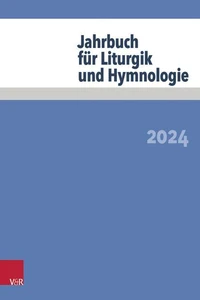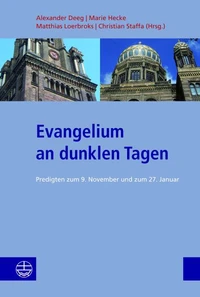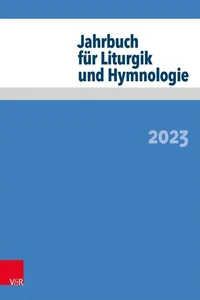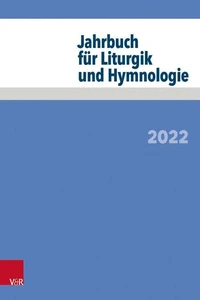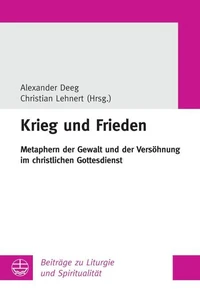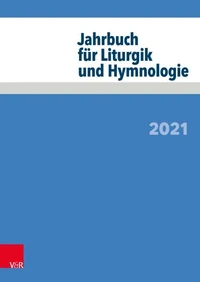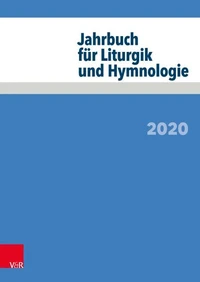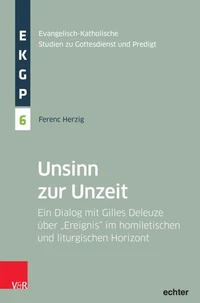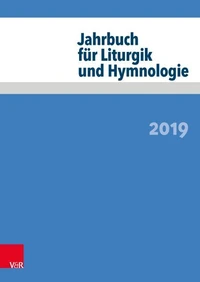Liturgie – Körper – Medien. Herausforderungen für den Gottesdienst in der digitalen Gesellschaft
Par : ,Formats :
Disponible dans votre compte client Decitre ou Furet du Nord dès validation de votre commande. Le format ePub est :
- Compatible avec une lecture sur My Vivlio (smartphone, tablette, ordinateur)
- Compatible avec une lecture sur liseuses Vivlio
- Pour les liseuses autres que Vivlio, vous devez utiliser le logiciel Adobe Digital Edition. Non compatible avec la lecture sur les liseuses Kindle, Remarkable et Sony
 , qui est-ce ?
, qui est-ce ?Notre partenaire de plateforme de lecture numérique où vous retrouverez l'ensemble de vos ebooks gratuitement
Pour en savoir plus sur nos ebooks, consultez notre aide en ligne ici
- Nombre de pages152
- FormatePub
- ISBN978-3-374-06121-1
- EAN9783374061211
- Date de parution31/08/2019
- Protection num.Digital Watermarking
- Taille998 Ko
- Infos supplémentairesepub
- ÉditeurEvangelische Verlagsanstalt
Résumé
Die Digitalisierung verändert Wahrnehmungsweisen grundlegend. Algorithmen, Datenbanken und social communities bestimmen westliche Kulturen in einer elementaren Weise wie Klima und Geschichte. Wie das aber auch Frömmigkeit und liturgische Formen verändert, ist in unseren Kirchen kaum bedacht. Elementare Fragen drängen herauf: Welche Bedeutung hat der menschliche Körper für religiöse Erfahrungen und in wie weit sind Sakrament und gelebter Leib Christi digitalisierbar? Was bedeuten virtuelle Sakralräume? Ist der Gottesdienst selbst ein Medium, oder ist er Fest einer Gottesgegenwart, die alle Möglichkeiten menschlicher Kommunikation übersteigt?
Dieser Band nimmt die Fragen auf - wissend, wie groß und unerschlossen das Forschungsland ist.
Die Beiträge folgen Gottesdienstgestaltungen im digitalen Raum, beleuchten den Zusammenhang von Körper, Medialität und Erfahrung, suchen theologische Wegmarken und kulturwissenschaftliche Vergleichspunkte. MIt Beiträgen von Kristina Fiedler, Christian Grethlein, Ferenc Herzig, Kristin Merle, Volkmar Mühleis, Dirk Pilz, Christian Walti und Katharina Wiefel-Jenner [Liturgy - Body - Media . Challenges for Church Services in Modern Society] The digital world changes how we perceive things in a fundamental way.
Algorithms, databases and social communities are defining western cultures. But our churches barely consider how this affects the praxis of piety and liturgical forms. Elementary questions rise up such as: what significance does the human body have for religious experience? To what extent are sacrament and the living body of Christ digitizable? What do virtual sacred spaces signify? Is the service itself one medium or rather the celebration of God's presence that is beyond all possibilities of human communication? This volume takes up questions - recognising that the field of research is enormous and largely unexplored.
The contributions observe liturgies in the digital world, take a close look on the relations between body, mediality and experience, and look for points of reference in Theology as well as in Cultural studies.
Die Beiträge folgen Gottesdienstgestaltungen im digitalen Raum, beleuchten den Zusammenhang von Körper, Medialität und Erfahrung, suchen theologische Wegmarken und kulturwissenschaftliche Vergleichspunkte. MIt Beiträgen von Kristina Fiedler, Christian Grethlein, Ferenc Herzig, Kristin Merle, Volkmar Mühleis, Dirk Pilz, Christian Walti und Katharina Wiefel-Jenner [Liturgy - Body - Media . Challenges for Church Services in Modern Society] The digital world changes how we perceive things in a fundamental way.
Algorithms, databases and social communities are defining western cultures. But our churches barely consider how this affects the praxis of piety and liturgical forms. Elementary questions rise up such as: what significance does the human body have for religious experience? To what extent are sacrament and the living body of Christ digitizable? What do virtual sacred spaces signify? Is the service itself one medium or rather the celebration of God's presence that is beyond all possibilities of human communication? This volume takes up questions - recognising that the field of research is enormous and largely unexplored.
The contributions observe liturgies in the digital world, take a close look on the relations between body, mediality and experience, and look for points of reference in Theology as well as in Cultural studies.
Die Digitalisierung verändert Wahrnehmungsweisen grundlegend. Algorithmen, Datenbanken und social communities bestimmen westliche Kulturen in einer elementaren Weise wie Klima und Geschichte. Wie das aber auch Frömmigkeit und liturgische Formen verändert, ist in unseren Kirchen kaum bedacht. Elementare Fragen drängen herauf: Welche Bedeutung hat der menschliche Körper für religiöse Erfahrungen und in wie weit sind Sakrament und gelebter Leib Christi digitalisierbar? Was bedeuten virtuelle Sakralräume? Ist der Gottesdienst selbst ein Medium, oder ist er Fest einer Gottesgegenwart, die alle Möglichkeiten menschlicher Kommunikation übersteigt?
Dieser Band nimmt die Fragen auf - wissend, wie groß und unerschlossen das Forschungsland ist.
Die Beiträge folgen Gottesdienstgestaltungen im digitalen Raum, beleuchten den Zusammenhang von Körper, Medialität und Erfahrung, suchen theologische Wegmarken und kulturwissenschaftliche Vergleichspunkte. MIt Beiträgen von Kristina Fiedler, Christian Grethlein, Ferenc Herzig, Kristin Merle, Volkmar Mühleis, Dirk Pilz, Christian Walti und Katharina Wiefel-Jenner [Liturgy - Body - Media . Challenges for Church Services in Modern Society] The digital world changes how we perceive things in a fundamental way.
Algorithms, databases and social communities are defining western cultures. But our churches barely consider how this affects the praxis of piety and liturgical forms. Elementary questions rise up such as: what significance does the human body have for religious experience? To what extent are sacrament and the living body of Christ digitizable? What do virtual sacred spaces signify? Is the service itself one medium or rather the celebration of God's presence that is beyond all possibilities of human communication? This volume takes up questions - recognising that the field of research is enormous and largely unexplored.
The contributions observe liturgies in the digital world, take a close look on the relations between body, mediality and experience, and look for points of reference in Theology as well as in Cultural studies.
Die Beiträge folgen Gottesdienstgestaltungen im digitalen Raum, beleuchten den Zusammenhang von Körper, Medialität und Erfahrung, suchen theologische Wegmarken und kulturwissenschaftliche Vergleichspunkte. MIt Beiträgen von Kristina Fiedler, Christian Grethlein, Ferenc Herzig, Kristin Merle, Volkmar Mühleis, Dirk Pilz, Christian Walti und Katharina Wiefel-Jenner [Liturgy - Body - Media . Challenges for Church Services in Modern Society] The digital world changes how we perceive things in a fundamental way.
Algorithms, databases and social communities are defining western cultures. But our churches barely consider how this affects the praxis of piety and liturgical forms. Elementary questions rise up such as: what significance does the human body have for religious experience? To what extent are sacrament and the living body of Christ digitizable? What do virtual sacred spaces signify? Is the service itself one medium or rather the celebration of God's presence that is beyond all possibilities of human communication? This volume takes up questions - recognising that the field of research is enormous and largely unexplored.
The contributions observe liturgies in the digital world, take a close look on the relations between body, mediality and experience, and look for points of reference in Theology as well as in Cultural studies.



